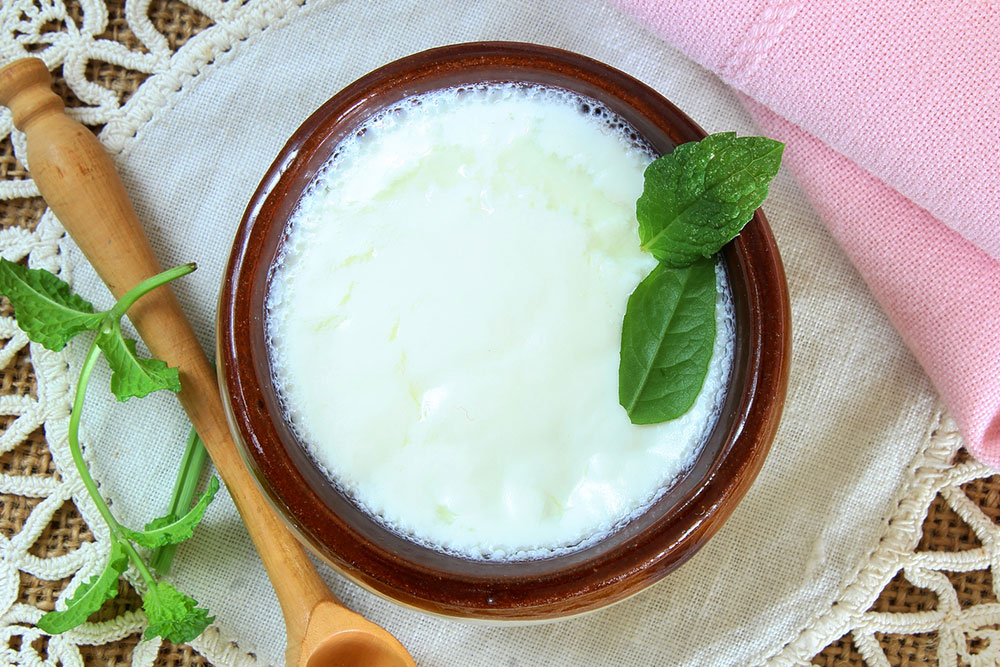10 foods that can trigger IBS symptoms

Irritable bowel syndrome, commonly known as IBS, is a gastrointestinal disorder that affects many people in the country. While its symptoms can vary from person to person, they usually include bloating, constipation or diarrhea, abdominal pain, and cramping. Since IBS is a chronic condition that can affect one’s quality of life, it is essential to manage it well. A significant factor that can trigger or worsen IBS is the consumption of the following foods.
Milk
Milk and dairy products contain a sugar called lactose, which can be hard to digest. When people with IBS consume lactose, they may experience symptoms like bloating, abdominal discomfort, and diarrhea. For some, dairy products, especially cheese, can also trigger constipation. Hence, it is better for those with the condition to avoid dairy products, especially if they are lactose intolerant.
Broccoli
Cruciferous vegetables like broccoli, cabbage, Brussels sprouts, and kale are known for their high nutritional content. However, they are particularly hard to digest, especially when eaten raw. These vegetables can trigger IBS symptoms like gas and bloating. If someone cannot do without these veggies, they must cook them well before adding them to their meals. Doing so makes them comparatively easier to digest, reducing the risk of a flare-up.
Whole wheat
Insoluble fiber is among the common nutrients that can trigger IBS symptoms, and it is found in abundance in whole wheat. While insoluble fiber helps manage constipation, it can sometimes trigger diarrhea. Hence, those who experience diarrhea as an IBS symptom should avoid whole wheat products. Whole wheat also contains gluten, another element that can trigger the condition’s symptoms.
Chips
Processed foods like chips, frozen meals, processed meats, and deep-fried foods contain a lot of salt, added sugars, fats, and additives. These properties can make them hard to digest, leading to diarrhea and other IBS symptoms. Therefore, patients must avoid highly processed foods as far as possible and reach for home-cooked meals. Doing so can not only help manage the condition but also reduce the risk of other health complications.
Coffee
The caffeine in coffee can stimulate the digestive system, triggering or worsening IBS symptoms like diarrhea. Coffee can also trigger constipation in some people. Hence, those with IBS must limit their caffeine intake or avoid it completely.
Legumes
Besides protein and fiber, legumes and beans contain oligosaccharides. This fermentable carbohydrate can make them hard to digest, triggering IBS symptoms like gas and bloating. If someone loves legumes and cannot do without them, they should prepare legumes by soaking them overnight and cooking them thoroughly. This makes them a little easier on the digestive system, lowering the risk of a flare-up.
Apples
Certain fruits, like apples, plums, watermelons, mangoes, and pears, are rich in insoluble fiber and FODMAPs, which can trigger IBS symptoms. While patients can still eat these fruits, they should do so in moderation and be mindful of their food intolerances. This approach can minimize gastrointestinal discomfort and ensure digestive well-being.
Chili peppers
The capsaicin in spicy foods like chili peppers can irritate a person’s digestive tract and cause discomfort. The discomfort could be worse for individuals with IBS, as peppers could also trigger other symptoms. Hence, spicy food is best avoided by individuals with the condition.
Chocolates
Most chocolates contain high amounts of added sugar, caffeine, and fat, which could trigger IBS symptoms. Some even contain lactose, which could worsen the condition further. Individuals with IBS should enjoy chocolates in moderation. Those who are lactose intolerant can consider vegan chocolates.
Sodas
Sods are tasty and refreshing, making them popular among many people. However, carbonated beverages, especially those with artificial sweeteners, can contribute to gas, bloating, and diarrhea in individuals with IBS.
Healthy food habits to manage IBS symptoms
Poor eating habits can also trigger IBS symptoms, so patients should be mindful. Here are a few tips to help manage the condition better:
Do not drink water while eating
Individuals with IBS should not drink water while eating, as this could hinder the digestion process and trigger the symptoms. There should be a gap of at least an hour between drinking water and eating meals.
Eat small portions
Smaller meals spread throughout the day are easier for the digestive tract to process, so it reduces the likelihood of triggering IBS symptoms. One must also ensure they eat slowly and do not rush through their meals.
Do not eat foods at opposite temperatures
One must avoid simultaneously consuming hot and cold foods, especially when dealing with IBS. Extreme temperature variations may disrupt the digestive process and potentially trigger the symptoms.
Stay hydrated
Adequate hydration is essential for maintaining digestive health, particularly for individuals who experience constipation due to IBS. Water helps soften stools, easing their passage through the digestive tract and reducing the likelihood of constipation.
Besides unhealthy eating habits, stress can be a major trigger for IBS symptoms. Actively addressing and managing stress can significantly contribute to symptom relief. One can try relaxation techniques like meditation or seek help from a psychological therapist. If one cannot manage the condition even after making food and lifestyle changes, they should consult an expert for guidance.


